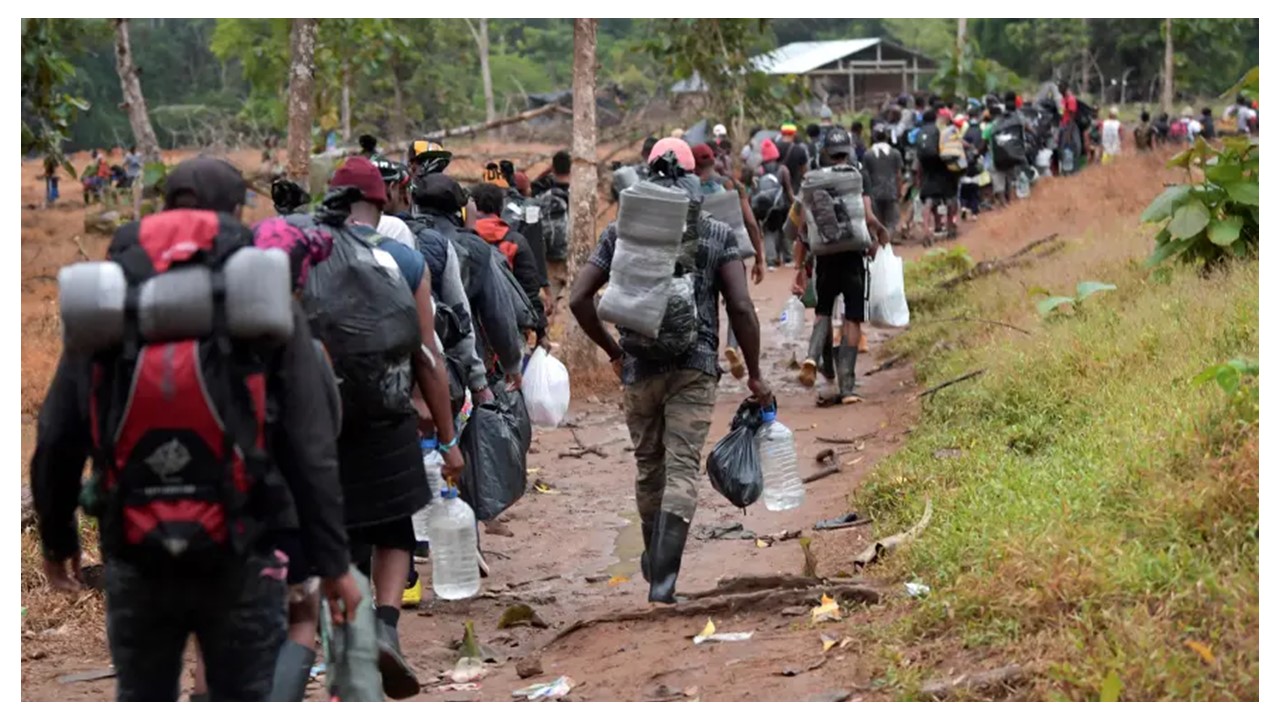Militarizing the border increases migrant suffering – Doctors Without Borders

In August, 79,455 people crossed the Darien Gap, an unprecedented number for a single month, of which 18,184 are minors, according to statistics from the National Migration Service and the Ministry of Public Security.
Given the humanitarian crisis on the border between Colombia and Panama, where more than 2,000 migrants are arriving daily crossing the dangerous Darién jungle, organizations such as Doctors Without Borders (MSF) believe that a response such as militarization only serves to increase the suffering of migrants.
“We do not have the capacity to suggest migratory routes or policies, but what we can say is that, as we have seen in so many contexts, the security of borders, the militarization of borders, does not reduce the transit of migrants, but increases their suffering,” said Luis Eguiluz the head of MSF for Colombia and Panama.
A response to a humanitarian crisis like the one experienced in the Darién, where this year the highest historical figures have already been recorded, with more than 300,000 migrants so far this year and almost 80,000 in August alone, which means increasing the presence of military or erect more barriers to transit, only goes against migrants.
“It makes them more vulnerable to the mafias that get rich from human trafficking and it makes it more difficult for them to access basic services. Therefore, border security is not going to reduce migrant smuggling,” said the MSF representative, who believes that the solution is through “safe routes” that “reduce the suffering and exposure to dangers of these people who are they are forced to migrate”.
Colombian silence
Faced with the increase in traffic through the impregnable jungle, the Colombian government remains silent while the Panamanian “has made the decision to transform this humanitarian problem into one of national security,” in the words of the Minister of Public Security, Juan Manuel Pino.
“Any attempt to reduce traffic – and we see it clearly in the Mediterranean – exposes people to unnecessary risks to a certain extent when routes can be allowed that ensure access to services and that do not expose dangers,” explains Eguiluz. ,
“Migrating is not a crime, it is part of people’s rights.” Trying to stop migration is impossible -MSF, which cares for migrants all over the world, knows this well-; Those who are determined to start a life in another country will do so, even if it is through more dangerous routes and exposing themselves to greater dangers.
MSF warned a week ago that the Panamanian government and the humanitarian organizations that serve the three migrant reception stations on the Panamanian side, “cannot cope” with the number of people arriving and the needs they have.
Systematic rape
“We are talking about a very difficult situation, whether due to geographical risks -such as rivers, mountains, etc.- or exposure to violence. There is still no figure on how many people are left in the jungle and women and girls are sometimes exposed to almost systematic rape.
MSF has dealt with 206 cases of sexual violence so far this year, but they are aware that “it is probably an underreporting of all the cases that exist due to the difficulty of accessing the survivors inside the jungle as well as the need for these people to leave the country as soon as possible to continue their migratory route”.
This humanitarian organization -together with UN agencies and other NGOs- in immigration stations that, have a capacity for 250 people, have to accommodate more than 2,000 every day.





